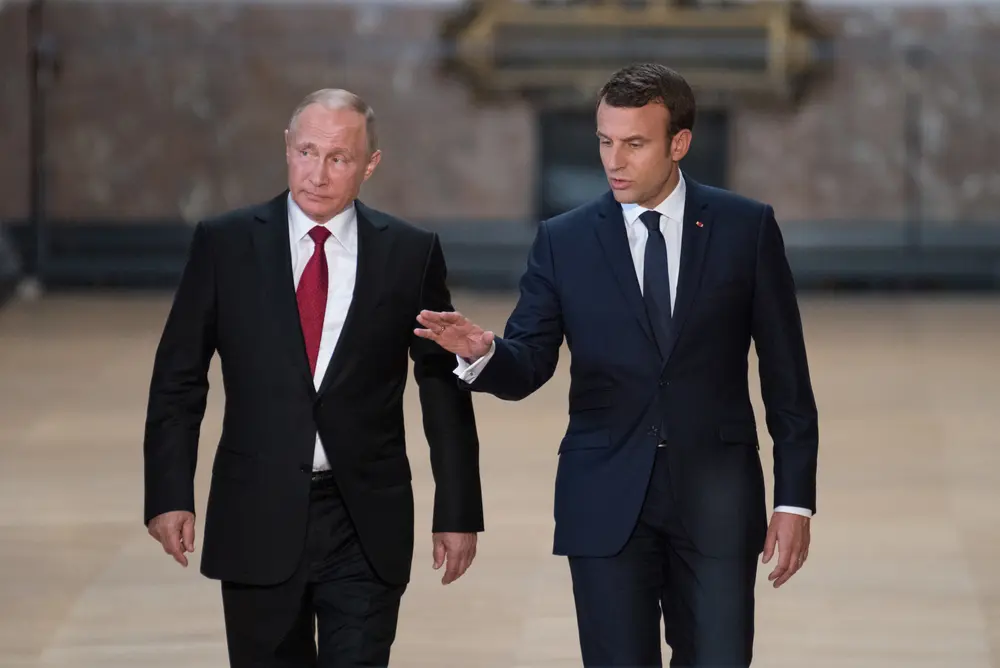
Since his first election in 2017, French President Emmanuel Macron has tried with some consistency to develop a specific “Russian policy,” aiming to always maintain communication with Vladimir Putin, regardless of the context. This earned him repeated criticism from his political opponents in France in 2018.
The outbreak of a war between Ukraine and Russia, as France holds the temporary presidency of the European Union, has done nothing to fundamentally change Macron’s policy.
While the French government has condemned Russian aggression, enforced EU sanction policies, and supported Ukraine in terms of armaments, the French president seeks to continue regular exchanges with Vladimir Putin. In the first phase of the conflict, he multiplied the telephone calls with the Russian leader, featuring them extensively in the French press—despite their very limited effectiveness.
But practical resolutions may not have been the end game for Macron. The regular conversations with Vladimir Putin allowed Macron, in the context of the French presidential elections, to establish more firmly his position as a warlord and his international stature in the face of his political opponents, regardless of the results obtained on the ground in these negotiations.
Tired of this little media game, Ukrainians have reportedly created a neologism to mock the futility of Emmanuel Macron’s communications. The verb “макроніт,” which could be translated into English as “to macronize,” meaning “to show oneself very worried about a situation, but to do nothing concretely,” summarises the online Ukrainian war of words occurring on Telegram, according to Le Figaro. The buzzword conveys Macron’s habit of acquiring fame “not for any real help, but for his preoccupation with photos from the Elysée.”
Ukrainian anger was then intensified by Macron’s latest statements from Friday, June 3rd, when he denounced those who sought to “humiliate Russia”—a sentiment in direct opposition to Britain and America. The head of Ukrainian diplomacy, Dmytro Kuleba, believes that Macron’s latest statement is “humiliating France.”
Calls to avoid humiliation of Russia can only humiliate France and every other country that would call for it. Because it is Russia that humiliates itself. We all better focus on how to put Russia in its place. This will bring peace and save lives.
— Dmytro Kuleba (@DmytroKuleba) June 4, 2022
Emmanuel Macron again condemned Russian aggression, which he described as a “fundamental” error, but went on to defend himself by declaring that he wanted to start thinking about the post-war period “so that the day the fighting stops, we can build a way out through diplomatic channels.”
Unlike many other European leaders, Emmanuel Macron has not yet visited Kyiv, an inaction that has also received strong criticism, especially by Volodymyr Zelensky. However, he said on Friday, June 3rd, that a trip might be possible.
